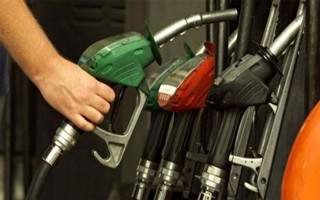
Both Burma and Bangladesh are hoping to see more offshore rigs in the Bay of Bengal.
The Bay of Bengal is the scene of a new battle between Burma and Bangladesh as the neighbors compete to attract international oil companies to invest in their hopefully resource-rich sections of the sea.
The two countries’ naval vessels confronted one another in 2008 over an oil and gas hunt in a disputed area of the bay before it was peacefully resolved by the UN’s International Tribunal for the Law of the Seas (ITLOS) arbitration in 2012.
As a result of that UN settlement—ending years of disagreement—the Bangladesh Ministry of Energy offered up 12 offshore block licenses for bids at the end of last year. Some of the blocks are close to the offshore territorial boundary decided by ITLOS in Bangladesh’s favor.
But the response from foreign oil firms has been disappointing, with offers only for three of the Bangladeshi blocks.
Now, the announcement by Burma’s Ministry of Energy last week that it was putting up 30 offshore block licenses in an auction has galvanized the Bangladeshis. They are hurriedly redrafting the terms of their licenses to try to compete better against their neighbor, said Bangladeshi media.
“[It] has forced a rethink by the Dhaka authorities,” Bangladeshi oil and gas industry magazine Energybangla reported.
Bidders for Burma’s new offshore blocks must make their offers by June 14.
Bangladesh’s revised terms and conditions are expected to be finalized by the end of this month and Petrobangla is planning a similar closing deadline to Burma.
“We want to ensure that the terms and conditions of the production sharing contracts for our deep-water blocks are competitive with those of neighboring countries Myanmar and India,” Petrobangla director Muhammad Imaduddin told The Financial Express in Dhaka last week.
Petrobangla is the Bangladeshi state oil and gas company that drafted the original terms and conditions of the 12 block licenses offered last December.
More than 12 large foreign firms made inquiries about the terms of licenses for the Bangladeshi blocks, including Chevron, Royal Dutch Shell, Santos, Statoil, Krisenergy, Eni, Bahrain Petroleum and China National Offshore Oil Corporation (CNOOC).
But in meetings with Dhaka Ministry of Energy officials the firms made it clear they did not like the terms, which they argued were too restrictive, said the Dhaka Independent.
New concessions now expected to be offered as inducement to invest in the nine Bangladeshi blocks still available include tax holidays during exploration and preparation for production and the right to sell 50 percent of all gas produced to third parties without first refusal by Petrobangla.
Some of the major international oil companies which have talked to Bangladesh are also reportedly interested in Burma’s offshore licensing offers, including Shell, Chevron and CNOOC.
The two international firms that have so far bid for new Bangladeshi offshore development blocks are ConocoPhillips of the United States and India’s ONGC Videsh Limited, which is also a partner in Burma’s Shwe gas field development in the Bay of Bengal. Most of the 200 billion cubic meters of proven gas reserves in two blocks of the field are being bought by China as a result of a secretive agreement reached in 2008 with the former Burmese military junta.
However, there are reports that the Burmese government might try to claw back for domestic development some of the country’s gas now being sold to Thailand and China.
“[Burma] is likely to review, and possibly renegotiate, existing natural resources deals as it prepares to sign up to the Norway-based Extractive Industries Transparency Initiative (EITI),” the London Financial Times reported on April 11.
“In light of Myanmar’s growing environmental concerns and a new emphasis on ensuring contracts are more equitable, the government is likely to reassess existing contracts for minerals, energy and other resources,” the paper said.
EITI is a voluntary industry agency that sets standards for financial disclosure, governance and the environmental. President Thein Sein called the agency in after a number of major Western oil companies voiced concerns about the bidding procedures for Burma’s offshore exploration and production, and the continued involvement of the state Myanma Oil & Gas Enterprise, which was closely linked with the former military regime.
The oil companies’ concerns led to a postponement of the offshore blocks auction last year until now.
“Re-launching the [blocks] auction after less than 12 months with revised transparency rules is a testimony that the [Burmese] government is committed to cooperation with Western global energy majors,” said an assessment by the Private Equity Wire, a UK-based energy industry investment adviser. “The industry is expected to attract multi-billion dollar investments in the coming several years.”
Burma is seen as a better bet than Bangladesh by more potential oil and gas investors, say industry observers, because although both countries suffer from corruption and a lack of openness the eyes of the world are more closely fixed on Burma.
Potentially there are more prospects in Burma, too. In addition to the 30 offshore blocks now on offer, another 20 are expected to be offered in a year.
Source: irrawaddy








